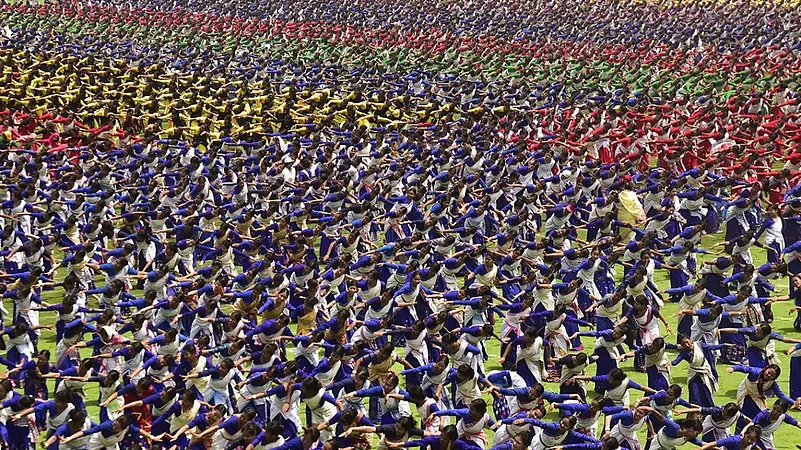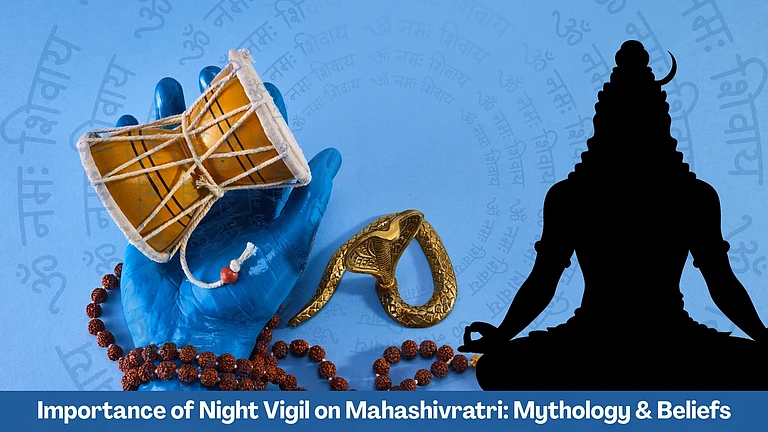Assam on Thursday etched its name in the Guinness World Records with 11,304 dancers and drummers performing 'Bihu' dance and playing 'dhol' in a single venue, Chief Minister Himanta Biswa Sarma said.
This is the largest recital of the folk dance form, he said. In the presence of an adjudicator from the Guinness World Records headquarters in London, the performers presented their show and achieved the global feat for 'Bihu' dance and 'dhol'.
"We have made world records for both Bihu dance as well as Bihu dhols with 11,304 dancers and drummers. It is the largest Bihu dance and Bihu dhol performance in a single venue," Sarma said at the Indira Gandhi Athletic Stadium here.
The process of registering 'Bihu' in the Guinness World Records was initiated by the Assam government, and the cost is borne by the culture department, an official said.
The performers will showcase the 'Bihu' dance in front of Prime Minister Narendra Modi, who will be on a day-long visit to Guwahati on Friday.
The Guinness certificates will be handed over in his presence, the official said.
Sarma also received a Geographical Indication registration certificate for 'Gamosa'(Assamese scarf) from Controller General of Patent, Designs and Trademarks and Registrar of GI Registry Unnat P Pandit.
'Gamosa', a symbol of the culture and identity of Assam, received the GI tag from the central government in December 2022, five years after the first application was made.
A GI is tagged to primarily agricultural, natural or manufactured products, handicrafts and industrial goods originating from a definite geographical territory.
The 'gamosa', a handwoven rectangular cotton piece of cloth with red borders and different designs and motifs, is traditionally offered to elders and guests as a mark of respect and honour by Assamese people.
It is an integral part of all socio-religious ceremonies in the state and is considered as an Assamese identity and pride. A 'gamosa' literally means a towel and is commonly used in Assamese households for day-to-day affairs.


























